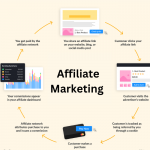Are you bursting with innovative app ideas and eager to turn them into a reality? In today’s digital age, creating and launching a successful app can be a rewarding venture. However, it requires careful planning, execution, and a clear understanding of the app development process. In this article, we will guide you through the essential steps to transform your app idea into a tangible and successful mobile application.
Turn an App Idea into Reality
Turning an app idea into reality is an exciting journey that requires careful planning, strategic thinking, and effective execution. In this article, we will explore the step-by-step process to transform your app idea into a fully functional and successful mobile application.
Define Your App’s Purpose and Target Audience
To begin, it’s crucial to have a clear understanding of your app’s purpose and the target audience it aims to serve. Define the problem your app solves and identify the specific user needs it addresses. This clarity will guide you throughout the development process.
Conduct Thorough Market Research
Before diving into development, conduct thorough market research to identify existing apps in your niche and understand their strengths and weaknesses. Analyze user reviews and feedback to gain insights into what users appreciate and what can be improved. This research will help you refine your app’s concept and position it effectively in the market.
Sketch Your App’s Design and User Interface
Once you have a solid understanding of your app’s purpose and the market landscape, it’s time to sketch your app’s design and user interface. Consider the user experience, intuitive navigation, and visual appeal. Use wireframing tools or work with a designer to create mockups that reflect your app’s functionality and aesthetics.
See more…
Choose the Right Development Approach
Next, you need to choose the right development approach for your app. There are three main options: native, web-based, or hybrid development. Native apps provide the best performance and access to device-specific features but require separate development for different platforms. Web-based apps are easier to develop and maintain but have limited access to device capabilities. Hybrid apps combine elements of native and web-based apps, offering a balance between performance and development efficiency.
Develop a Minimum Viable Product (MVP)
When starting app development, focus on building a Minimum Viable Product (MVP). An MVP is a version of your app with essential features that allow you to gather feedback from early users. This approach helps you validate your app’s concept, test its usability, and make necessary improvements before investing significant resources.
Test and Iterate Your App
Testing is a critical phase of app development. Conduct thorough testing to identify and fix bugs, improve performance, and enhance user experience. Gather feedback from beta testers and iterate based on their suggestions. This iterative approach ensures your app meets user expectations and delivers a seamless experience.
Implement Key Features and Functionality
Once your app’s core functionality is validated, you can focus on implementing additional features and functionality. Prioritize features based on user needs and market demand. Ensure that each feature adds value to the user experience and aligns with your app’s overall purpose.
Optimize for User Experience (UX)
User experience (UX) plays a vital role in the success of any app. Pay attention to usability, navigation, and overall design aesthetics. Optimize your app for responsiveness, smooth performance, and intuitive interactions. Conduct user testing to gather insights on how to enhance the user experience further.
Focus on App Security and Data Privacy
With the increasing concerns about data privacy and security, it is crucial to prioritize these aspects during app development. Implement robust security measures to protect user data and ensure compliance with relevant regulations, such as GDPR or CCPA. Build trust with your users by demonstrating your commitment to their privacy.
Prepare for Launch and App Store Submission
As your app nears completion, prepare for its launch and submission to app stores. Create engaging app descriptions, screenshots, and promotional materials. Follow the guidelines provided by the respective app stores (such as Apple’s App Store or Google Play Store) to ensure a smooth submission process.
Create a Marketing Strategy
A well-defined marketing strategy is essential to maximize your app’s visibility and reach. Develop a comprehensive plan that includes app store optimization (ASO), social media marketing, content marketing, influencer collaborations, and targeted advertising. Leverage various channels to create awareness and attract users to download your app.
Gather User Feedback and Make Improvements
Once your app is live, actively gather user feedback through reviews, ratings, and user surveys. Listen to your users’ suggestions, address any issues promptly, and continuously improve your app based on their feedback. Building a loyal user base requires ongoing engagement and a commitment to enhancing the user experience.
Scale and Evolve Your App
As your user base grows, focus on scaling your app to accommodate increased demand. Monitor analytics to identify areas for improvement, new feature opportunities, and market trends. Regularly release updates and new versions to keep your app fresh and appealing to users.
Transforming your app idea into a reality requires careful planning, diligent execution, and continuous improvement. By following the outlined steps, you can navigate the app development process with confidence and increase your chances of creating a successful mobile application.
FAQs
1. How long does it take to develop an app from an idea? The development timeline can vary depending on various factors such as the complexity of the app, desired features, and the development approach. It can take anywhere from a few months to a year or more to transform an idea into a fully functional app.
2. Do I need coding skills to develop an app? While having coding skills can be advantageous, it is not always necessary. There are various app development platforms and tools available that allow individuals with limited coding knowledge to create apps. However, for more complex applications, working with professional developers is recommended.
3. How can I protect my app idea from being copied? To protect your app idea, consider applying for a patent or copyright protection. Additionally, ensure that anyone involved in your app’s development signs a non-disclosure agreement (NDA) to maintain confidentiality.
4. How can I monetize my app? There are several monetization strategies for apps, including in-app purchases, subscriptions, advertisements, and sponsorships. Choose a monetization model that aligns with your app’s purpose and target audience.
5. Can I update my app after it is launched? Yes, updating your app after launch is crucial to address bug fixes, add new features, improve performance, and respond to user feedback. Regular updates demonstrate your commitment to providing an excellent user experience.








